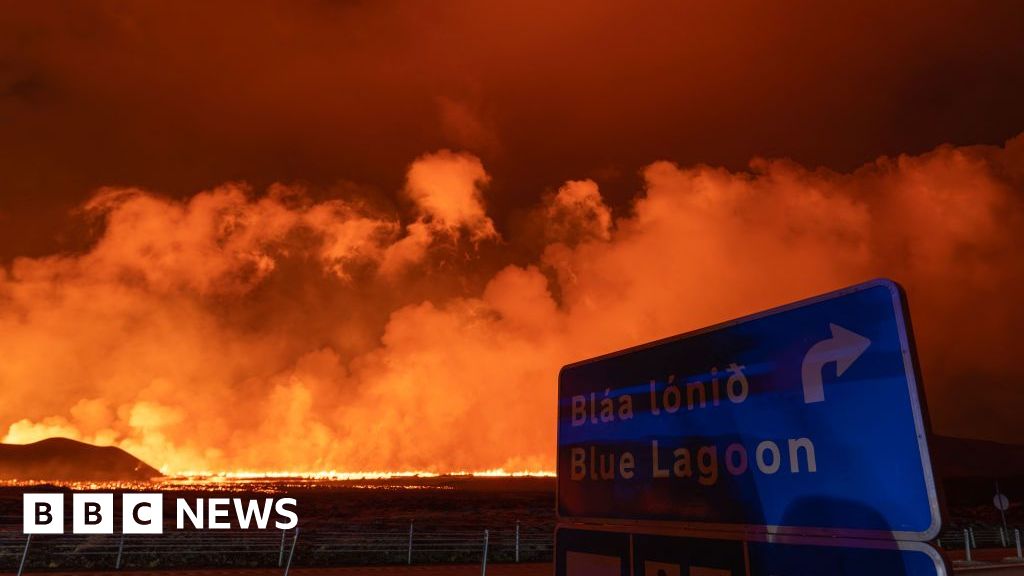Last May was another particularly challenging month for Ukraine, as Russia escalated its war of aggression against its neighbor.
Many Ukrainians are nevertheless already planning their postwar future.
Representatives of the country's museums met at the end of the month for a two-day conference held in Berlin. Called "From Crisis to Future: New Responsibilities for Museums in Ukraine," the conference was initiated by OBMIN, a Warsaw-based foundation that was set up in 2022 and serves as a platform for more than 100 museums from all parts of Ukraine.
The event, described as the largest gathering of Ukrainian museum workers since Russia's full-scale invasion of the country in February 2022, allowed experts from Ukraine, Poland and Germany to discuss their visions for restoring cultural heritage sites in the near and distant future.
 An Orthodox Church in the village of Bohorodychne, DonetskImage: Maxym Marusenko/NurPhoto/picture alliance
An Orthodox Church in the village of Bohorodychne, DonetskImage: Maxym Marusenko/NurPhoto/picture allianceDelegates developed 10 concrete proposals highlighting how museums can contribute to the reconstruction of Ukraine and strengthen its civil society.
The proposals will be presented at the Ukraine Recovery Conference, an international annual meeting held this year in Berlin, on June 11-12. The high-level political event addresses various issues related to the reconstruction of Ukraine, including economic and social aspects, as well as planning reforms at regional, national and EU-related levels.
Destruction of cultural heritage as a wartime strategy
According to numbers provided by OBMIN, 102 Ukrainian museums and galleries have been damaged, of which 12 were completely destroyed since Russia launched its full-scale invasion in 2022.
There are also 1,062 cultural heritage sites that have been damaged by the war. Out of this number, 123 are of national and 864 of local significance.
 The Transfiguration Cathedral was badly damaged by Russian attacks in the city of Odesa, a UNESCO World Heritage siteImage: Jae C. Hong/AP/pictrture alliance
The Transfiguration Cathedral was badly damaged by Russian attacks in the city of Odesa, a UNESCO World Heritage siteImage: Jae C. Hong/AP/pictrture allianceAttacking cultural heritage has long been a wartime strategy; here too, Russian occupiers aim to destroy Ukrainian identity by damaging these objects.
Museum directors are also one of the Russians' targets, explained Milena Chorna, expert of the Subgroup on Safeguarding Cultural Heritage of Ukraine at the European Commission and Head of the Ukrainian Museum Association.
As museum workers stayed behind to safeguard their collections in occupied territories, many of them were kidnapped by Russian forces, deliberately targeted "as leaders of their community and as opinion leaders," Chorna told DW. The goal was to make them collaborate with the Russians. Since they were "mostly unwilling to do so, they were put under psychological and physical pressure." Two museum directors were killed in Russian attacks. Fortunately, adds the cultural expert, most of the museum workers have been meanwhile vacated from the occupied zones.
 Art historian, Milena Chorna, is among the experts committed to preserving Ukraine's cultural heritage Image: Elizabeth Grenier/DW
Art historian, Milena Chorna, is among the experts committed to preserving Ukraine's cultural heritage Image: Elizabeth Grenier/DWThe different definitions of 'the future'
Knowing that the end of the war is still unforeseeable, the "future" is a very indefinite framework.
Participants at the museums' conference visibly all had their own distinct perspective and timeline in mind when discussing the future of the country's cultural institutions. The discussion panels brought together a wide variety of museum experts, as well as people involved in the safeguarding of Ukrainian heritage.
Among them was Oleksandr Kostin, Acting Director of the Department of Culture and Tourism of the Kharkiv Region Military Administration, who spelt out concrete needs for the restoration of damaged museums. The measures he mentioned — such as planning bunkers and barrier-free entrances for the numerous people who have been disabled by the war, as well as finding ways to attract the people who left the war-torn area to return — are reminders of the fragile state of the region.
 The ruins of a local museum in Kupiansk, a once-occupied town in Ukraine's northeastern Kharkiv oblastImage: REUTERS
The ruins of a local museum in Kupiansk, a once-occupied town in Ukraine's northeastern Kharkiv oblastImage: REUTERSThen, on a completely different level during the same panel, Andrea Jürges from the Frankfurt Architecture Museum offered inspiring input on how museums of the future should develop a vision that goes beyond these institutions' traditional definition, in order to reinforce their role as a "third place" — the sociological term used to refer to environments that bring people together beyond the first two usual social spaces, home and the workplace. By serving as a meeting and discussion point, museums thereby contribute to strengthening civil society.
Yuliia Vaganova, Acting Director of the Khanenko Museum in Kyiv, later shared her experience on how her institution — which was also damaged by a Russian missile attack — already served as this "third place," gathering diverse members of society.
Early in the war, they opened their space to the public to allow people to drink tea and warm up together. The Khanenko Museum later organized a special opera that guided visitors through the museum's empty exhibition halls — as all the artworks had been dismantled to make sure they wouldn't be damaged by missile attacks.
 'Genesis. Opera of Memory' led visitors though the Khanenko MuseumImage: Hennadii Minchenko/Avalon/Photoshot/picture alliance
'Genesis. Opera of Memory' led visitors though the Khanenko MuseumImage: Hennadii Minchenko/Avalon/Photoshot/picture allianceBerlin as a model of postwar reconstruction
Even the location of the conference itself provided an example of the long-term work required to rebuild cultural institutions destroyed by war, as Hermann Parzinger, President of the Prussian Cultural Heritage Foundation, noted in his introductory speech at the conference.
The gathering was held in one of the newest institutions on Berlin's Museum Island, the James Simon Gallery. The whole ensemble of museums had to be restored following World War II — and was added to the list of UNESCO World Heritage Sites in 1999.
 Panel including Hermann Parzinger (with mike) and Anastasia Bondar, Ukraine's Vice Minister of Culture and Information Policy (third from right) Image: Obmin
Panel including Hermann Parzinger (with mike) and Anastasia Bondar, Ukraine's Vice Minister of Culture and Information Policy (third from right) Image: ObminAn ambitious vision
The OBMIN document developed by the conference participants, "Reconstruction of Ukraine and Strengthening of the Civil Society: 10 Fundamental Principles by Ukrainian Museums," demonstrates Ukrainians' optimism for the future, despite all current difficulties.
For example, one of the principles highlights how rebuilding Ukraine can serve as an opportunity to turn the country's museums into the "most modern, most visitor-oriented in the world." As the document adds, many museums in the currently occupied territories made giant steps in the digitization of their collections due to the war.
But first, the war needs to end
As Yuliia Vaganova pointed out during one of the panel discussions, the future of museums also includes ensuring that the country becomes safe again, and that, she said, includes supporting Ukraine with weapons so they can defend themselves against Russia.
 View of a hall in Mariupol's Museum of Local Lore that burned down after a shelling Image: AP Photo/picture alliance
View of a hall in Mariupol's Museum of Local Lore that burned down after a shelling Image: AP Photo/picture allianceMeanwhile, people in Poland are increasingly feeling the threat of war too. One participant, Barbara Golebiowska from the Maria Sklodowska-Curie Museum in Warsaw, told DW that she saw the conference not only as an opportunity to network with Ukrainian colleagues and see how she could help them, but also to learn from them in case the war were to erupt in her own country.
"In Poland, we are thinking about the war each day now, and as the director of a cultural institution, for me it's really an important question," she said. "It's horrible, but I think we should be prepared — and ideally avoid the war, of course."
Edited by: Brenda Haas

 5 months ago
21
5 months ago
21









